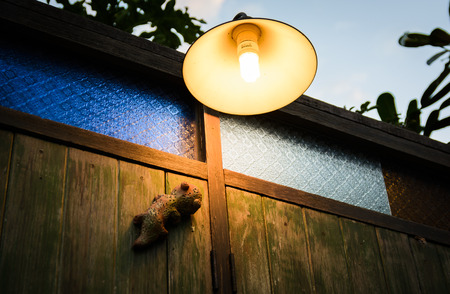Understanding the British Garden Aesthetic
When selecting garden lights for your outdoor space in the UK, it’s essential to appreciate how both traditional and contemporary British garden styles shape your choices. The British garden is renowned for its harmonious blend of structured elegance and natural charm, often featuring classic borders, manicured lawns, lush perennials, and winding pathways. Whether you favour the romantic appeal of an English cottage garden or the crisp lines of a modern landscape, lighting serves as both a practical tool and a means to accentuate these defining features.
Traditional gardens typically benefit from soft, warm lighting that highlights key architectural elements such as brick walls, stone pathways, or mature trees. On the other hand, contemporary spaces often call for sleek fixtures with cooler tones that complement minimalist designs and innovative planting schemes. Striking the right balance between functionality—ensuring safety along paths and patios—and aesthetic appeal is crucial to achieving that quintessentially British ambience after dusk.
| Garden Style | Recommended Lighting Features |
|---|---|
| Traditional (Cottage/Heritage) | Lantern-style wall lights, vintage-inspired lamp posts, warm white fairy lights, concealed uplighting for mature trees |
| Contemporary (Modern/Urban) | Sleek bollard lights, minimalist spotlights, integrated LED strips along decking or steps, cool white or colour-changing options |
Ultimately, understanding your garden’s underlying style will guide you in choosing lighting that not only enhances visibility but also amplifies the unique character of your outdoor space. By blending practicality with the timeless charm that defines British gardens, you can create an inviting atmosphere perfect for year-round enjoyment.
Assessing Your Outdoor Space and Needs
Before investing in garden lights, it’s essential to thoroughly assess your outdoor space and understand your specific requirements. Start by identifying the key features of your garden—whether it’s a quaint courtyard, a sprawling lawn, or a compact terrace. Take note of focal points such as flower beds, water features, seating areas, or winding pathways that could benefit from illumination. Highlighting these elements not only enhances safety but also elevates the ambience, adding value to your property over time.
Consider creating a simple table to map out which areas you want to light and the purpose of each zone:
| Garden Area | Lighting Purpose | Suggested Light Type |
|---|---|---|
| Pathways | Safety & Guidance | Bollard Lights / Solar Stake Lights |
| Pergolas/Seating Zones | Atmosphere & Entertaining | String Lights / Lanterns |
| Flower Beds | Highlight Features | Spotlights / Uplighters |
| Ponds/Water Features | Visual Interest | Submersible LED Lights |
| Driveways/Entrances | Security & Visibility | PIR Sensor Floodlights |
It’s also crucial to factor in typical UK weather conditions when choosing lighting. The British climate can be unpredictable, with frequent rain, frost, and fluctuating temperatures. Opt for fixtures with robust waterproof ratings (look for IP44 and above), corrosion-resistant materials like stainless steel or powder-coated finishes, and consider whether solar-powered options will receive adequate sunlight given the UK’s often overcast skies. By aligning your choices with both functional needs and environmental resilience, you’ll ensure your investment in garden lighting stands the test of time and adds lasting appeal to your outdoor living space.
![]()
3. Energy Efficiency and Sustainability
When selecting the best garden lights for your outdoor space in the UK, energy efficiency and sustainability are crucial factors that directly impact both your energy bills and your environmental footprint. With the rising cost of electricity and a growing focus on eco-friendly living, choosing between solar-powered and mains-powered garden lights is more important than ever.
Solar vs Mains-Powered Garden Lights: Key Considerations
| Feature | Solar-Powered | Mains-Powered |
|---|---|---|
| Energy Source | Sunlight (renewable) | Electricity (grid) |
| Running Costs | Minimal to none | Ongoing energy bills |
| Installation | Easy, no wiring required | Professional wiring often needed |
| Sustainability | Highly sustainable, zero emissions | Depends on grid source (can be less green) |
| Luminosity & Reliability | Dependent on weather & daylight hours | Consistent performance year-round |
The Impact on Energy Bills
With energy prices a constant concern for UK households, opting for solar-powered garden lighting can help reduce monthly costs significantly. Solar lights harness free energy from the sun, making them a savvy choice for budget-conscious homeowners who wish to enjoy beautiful outdoor illumination without worrying about rising utility bills.
Sustainability and Eco-Friendliness
The UK government continues to encourage greener living through policies and incentives aimed at reducing carbon emissions. Solar garden lights align perfectly with these objectives by offering a zero-emission lighting solution. For those keen on reducing their carbon footprint or pursuing an eco-conscious lifestyle, solar options are increasingly attractive.
Government Incentives and Future-Proofing Your Investment
The push towards renewable energy means there are often local grants or incentives for installing sustainable solutions at home. While most government schemes focus on larger-scale renewable installations, staying informed about local council initiatives or discounts on eco-friendly products can add value to your decision. Investing in energy-efficient garden lighting not only future-proofs your property but also aligns with the broader shift towards sustainability in the UK housing market.
4. Types of Garden Lights: From Festoon to Bollard
Choosing the right type of garden lighting is essential for both ambience and security in your UK outdoor space. The British market offers a diverse array of lighting options, each suited to different needs and garden styles. Below is an overview of the most popular garden lights and guidance on how to select the best fit for your requirements.
| Type | Description | Best For | Ambience or Security |
|---|---|---|---|
| Festoon Lights | String lights with decorative bulbs, often used for overhead or fence-line illumination. | Creating a warm, inviting atmosphere for gatherings or alfresco dining. | Ambience |
| Bollard Lights | Sturdy, vertical posts that emit light downwards, commonly lining paths or driveways. | Pathways, driveways, and borders where clear navigation is needed. | Security & Ambience |
| Spotlights | Directional lights used to highlight trees, sculptures, or architectural features. | Accent lighting for focal points in gardens. | Ambience & Security |
| PIR Security Lights | Sensors trigger these bright lights when motion is detected, deterring intruders. | Entrances, garages, and darker corners requiring enhanced safety. | Security |
| Wall Lights | Mounted on exterior walls to provide general or accent illumination. | Patios, entryways, and seating areas close to the house. | Ambience & Security |
| Solar Stake Lights | Easily installed lights powered by solar energy, ideal for low-maintenance gardens. | Lawn edges, flowerbeds, and temporary displays. | Ambience |
Selecting the Right Type for Your Needs
If You Prioritise Ambience:
For those who enjoy entertaining outdoors or simply wish to unwind in their garden after dusk, festoon lights and solar stake lights are excellent choices. Their soft glow sets a relaxed mood typical of British summer evenings. Spotlights can be used sparingly to draw attention to mature trees or contemporary sculptures, adding visual interest without overwhelming the senses.
If You Need Enhanced Security:
Bollard lights offer subtle yet effective pathway illumination that prevents trips while guiding guests safely. For heightened security—particularly in suburban or rural locations—PIR sensor security lights are invaluable. Position these at entry points or shadowy areas to deter unwanted visitors while providing peace of mind. Wall-mounted fixtures can also combine style with practicality around patios and doors.
Tying It All Together:
The key is to blend different types of garden lighting to achieve both aesthetic charm and robust security. Consider layering ambient festoon or wall lights with strategic spotlights and bollards; this approach ensures your garden remains both welcoming and safe throughout the year—rain or shine—a must-have feature for homes across the UK.
5. Installation and Maintenance Tips
Ensuring your garden lights are installed and maintained correctly is crucial, especially given the UK’s famously unpredictable weather. Below, we share key advice on safe installation, effective weatherproofing, and essential ongoing maintenance to keep your outdoor space both attractive and functional throughout the year.
Safe Installation: Prioritising Protection and Efficiency
Always use outdoor-rated cables and fittings, which comply with British Standards (BS 7671). If you’re not confident with electrics, hire a qualified electrician—safety should never be compromised. When installing solar or battery-powered lights, position them in areas where they can receive maximum daylight. For mains-powered options, ensure all connections are properly insulated and avoid running cables across pathways to prevent trip hazards.
Weatherproofing for UK Conditions
The UK’s climate means your lighting must withstand rain, wind, frost, and even the occasional heatwave. Opt for fixtures with an IP rating of at least IP44 for general outdoor use; higher ratings offer better protection against water ingress. Position lights away from direct ground contact when possible to reduce exposure to standing water. Seal any cable entry points with waterproof grommets or silicone sealant to minimise moisture penetration.
Weatherproof Ratings Table
| IP Rating | Protection Level | Recommended Use |
|---|---|---|
| IP44 | Protected from splashing water | General outdoor areas (patios, walls) |
| IP65 | Dust-tight & protected from water jets | Exposed locations (driveways, open gardens) |
| IP67+ | Immersion-resistant | Pond lighting or low-level ground fixtures |
Ongoing Maintenance: Keeping Your Garden Lights at Their Best
Regularly check bulbs and fixtures for signs of wear or corrosion—swap out any damaged components immediately to prevent electrical faults. Wipe lenses and panels clean of dirt or algae build-up every few months to maintain brightness. For solar lights, clear debris off solar panels to optimise charging efficiency. In autumn and winter, inspect fittings after storms or frosts; tighten loose screws and clear fallen leaves that may block light output.
By following these practical steps tailored for British gardens, you’ll extend the life of your outdoor lighting while ensuring your garden remains an inviting space in any season.
Cost Considerations and Value for Money
When selecting the best garden lights for your outdoor space in the UK, understanding the balance between initial outlay and long-term savings is crucial. While it can be tempting to opt for the lowest price upfront, savvy homeowners recognise that quality lighting solutions often provide greater value over time through energy efficiency, durability, and reduced maintenance.
Initial Outlay vs. Long-Term Savings
Assessing your budget requires a keen eye on both immediate costs and projected expenses. For instance, LED and solar-powered options may cost more initially than traditional halogen bulbs, but their lower energy consumption and longer lifespan translate into significant savings on utility bills and replacement costs. Here’s a comparison to illustrate typical costs:
| Lighting Type | Average Initial Cost (£) | Estimated Annual Running Cost (£) | Expected Lifespan (Years) |
|---|---|---|---|
| Halogen | 10-20 | 30-50 | 1-2 |
| LED | 15-40 | 5-10 | 8-10 |
| Solar | 10-35 | 0 (free) | 3-5 |
Sourcing High-Quality Options Within Budget
The UK market offers a range of reputable suppliers catering to various budgets without compromising on reliability. When sourcing garden lights, consider established retailers such as B&Q, John Lewis, or Wickes for mid-to-high-end products with robust warranties. For those seeking more cost-effective solutions, online platforms like Screwfix or Argos offer competitive deals while maintaining industry standards.
Navigating Sales and Incentives
Keen investors in home improvement should also take advantage of seasonal promotions, clearance sales, and government incentives for energy-efficient upgrades. Many UK councils occasionally support sustainability initiatives by offering discounts on solar lighting kits, further enhancing long-term value.
Key Takeaways for Value Maximisation
- Prioritise energy efficiency: Opt for LED or solar lights to reduce running costs.
- Select trusted suppliers: Buy from well-reviewed UK retailers with after-sales support.
- Factor in total cost of ownership: Consider installation, maintenance, and warranty when calculating value.
- Monitor offers: Stay alert to promotions that align with your timing and budget constraints.
A thoughtful approach to cost considerations ensures your investment in garden lighting not only enhances your outdoor space aesthetically but delivers solid returns through durability and efficiency—essential factors in today’s ever-evolving UK property landscape.


